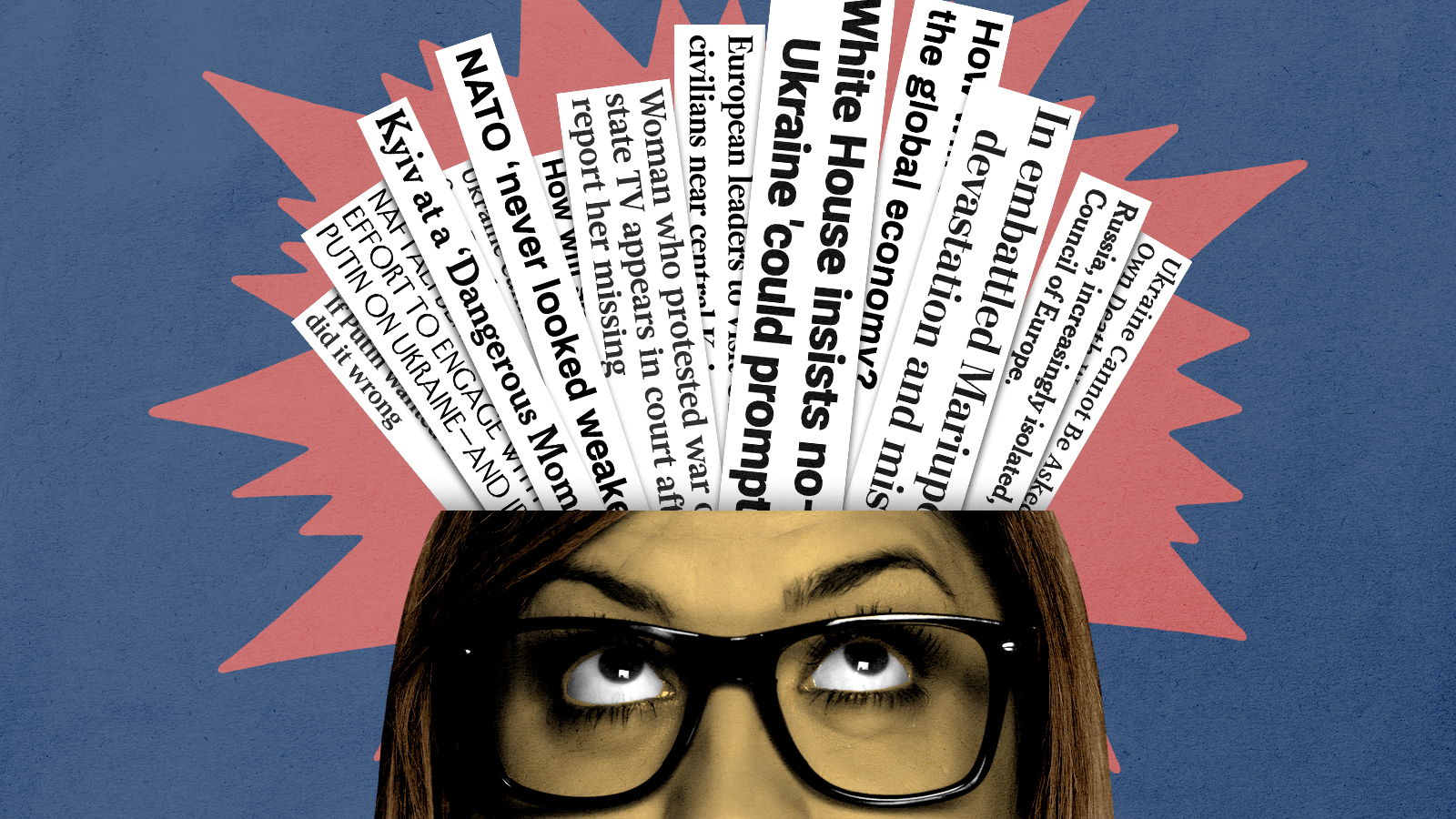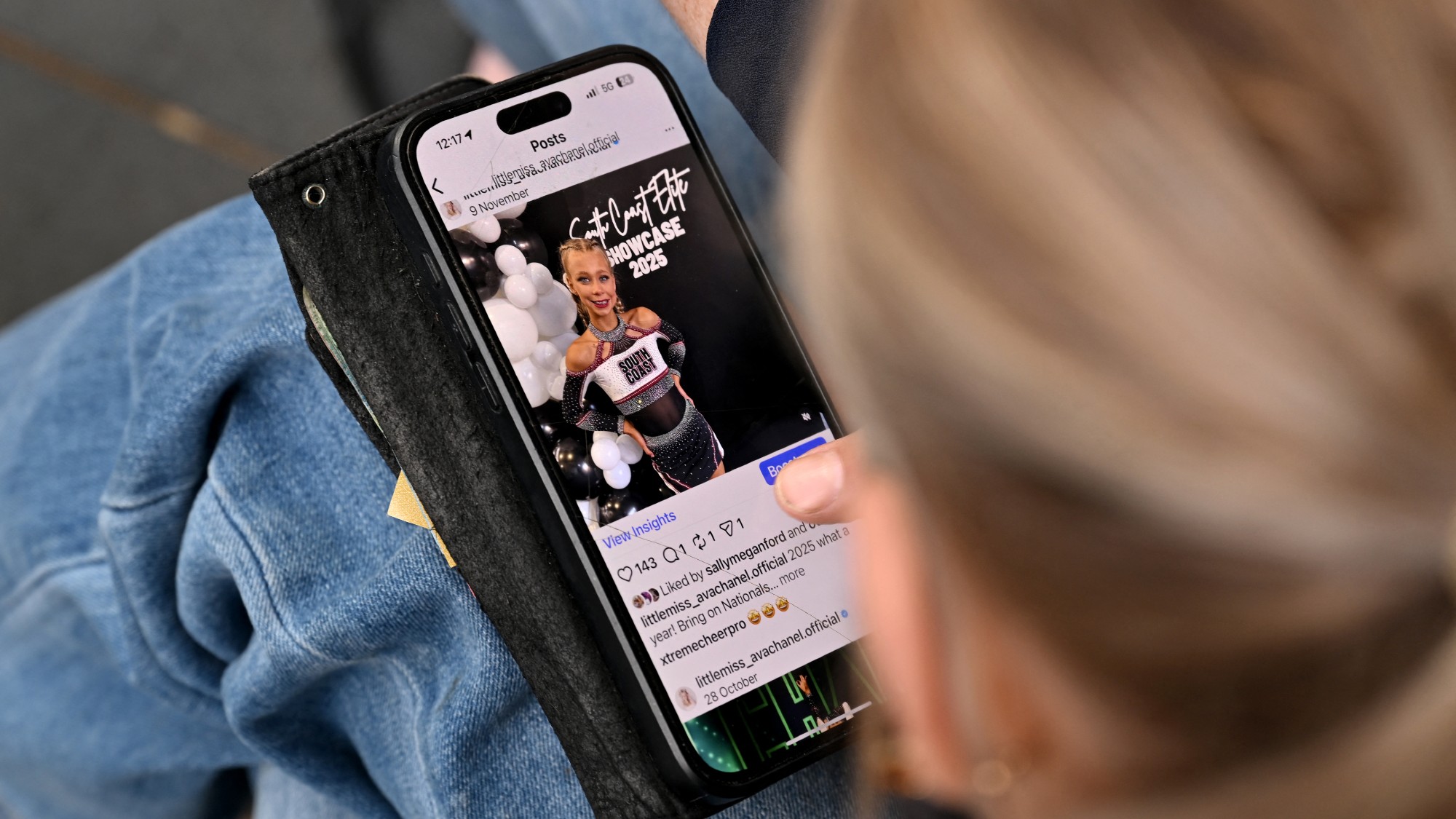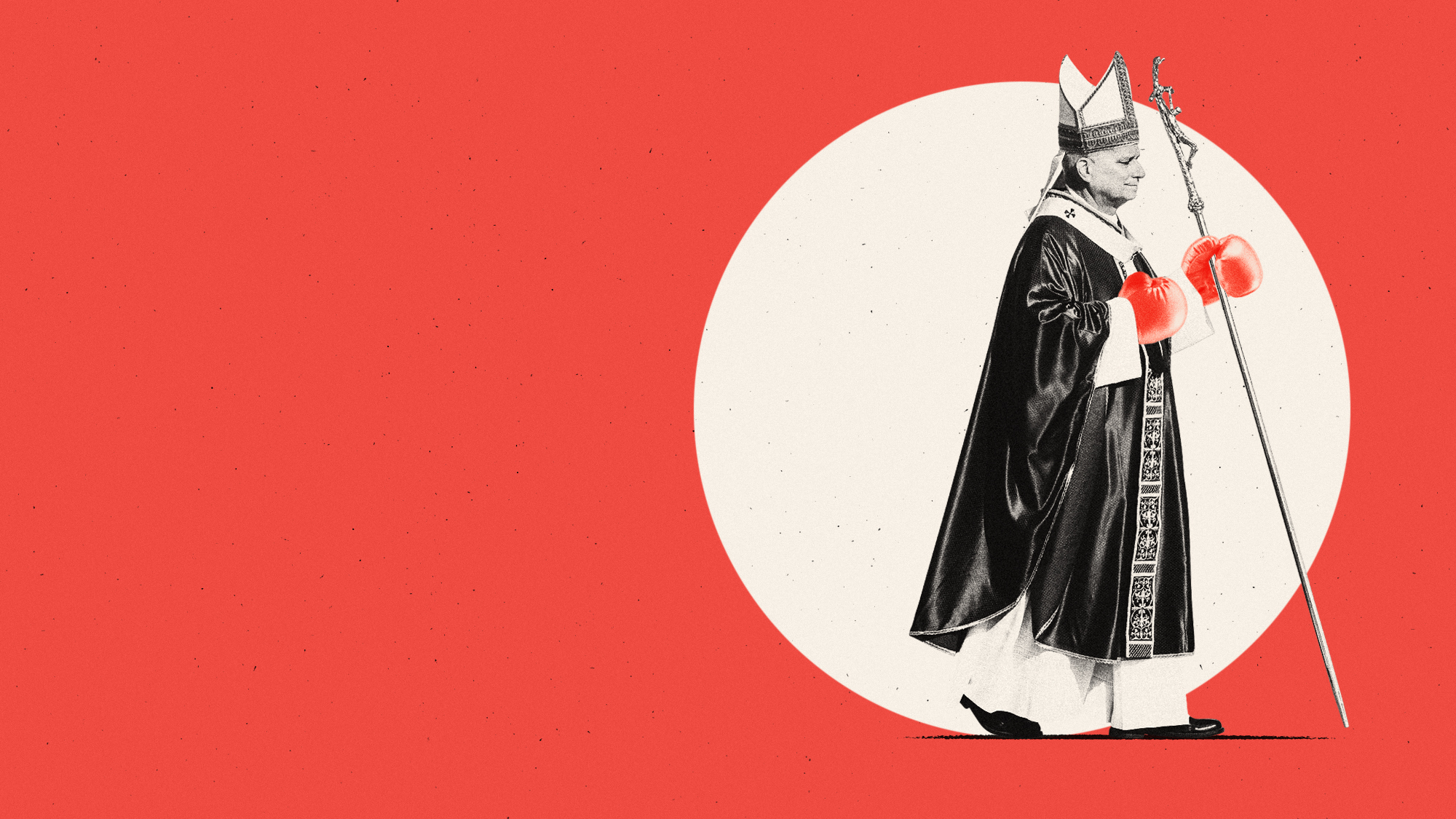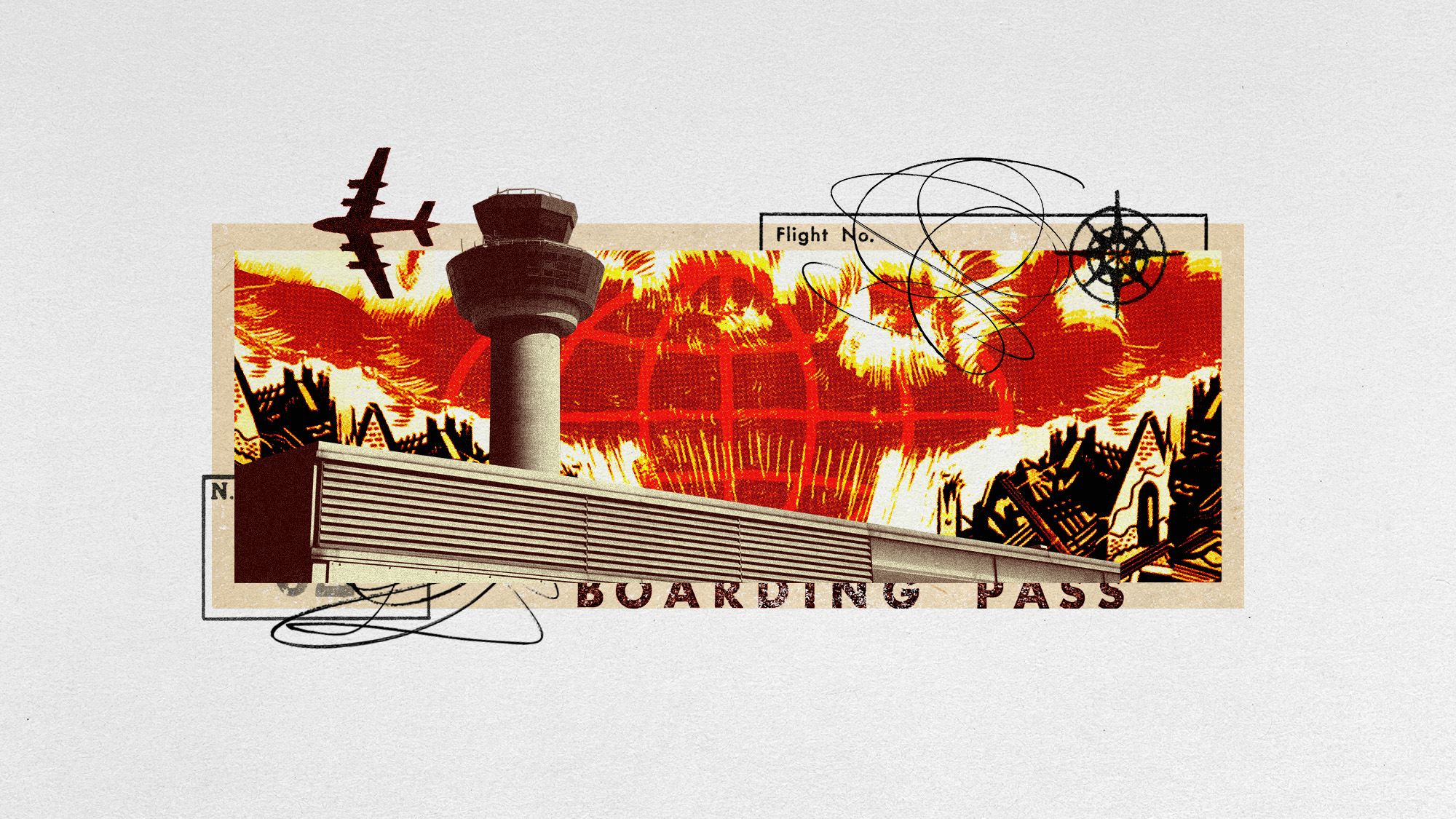Standing 'sentinel' on social media won't fix Ukraine


A free daily email with the biggest news stories of the day – and the best features from TheWeek.com
You are now subscribed
Your newsletter sign-up was successful
"There was an early day where [immersion on Twitter] was very, very pleasurable," author Patricia Lockwood mused in a New Yorker interview last month. Particularly when political engagement spiked during the Trump administration, she continued, "you felt that you had to be on there every day — like, 8 a.m., at your post — otherwise, you couldn't control what was going to happen that day. If you didn't know about it, then it would go on without you, beyond your control." The feeling you had, Lockwood suggested, was that of "standing sentinel," keeping an eye on the world, keeping it safe somehow, from your little digital watchtower.
In his newsletter, tech ethicist L.M. Sacasas explores that final phrase further:
'Standing sentinel.' I can't recall a more incisive formulation for the way many of us may experience being online at certain times. I especially appreciate the way Lockwood links this to some underlying, possibly inarticulate longing for control in what are, in fact, moments of extreme flux and disorder. This impulse may spring from the misguided belief that more information will automatically lead to greater clarity about what needs to be done, almost as if the accumulation of sufficient information will perforce reveal a plan of action eliminating the need for judgment. Judgment, after all, entails a measure of risk and responsibility, neither of which are especially welcome in our time. [Convivial Society]
Sacasas wrote just as Russia's invasion of Ukraine began, but his warning against grasping for control via information accumulation seems all the more important several weeks hence. Self-appointed sentinels are standing up all over, wanting very sincerely to help Ukraine, to do their bit. But the rightness of that sympathy doesn't make it any less powerless in the average social media user — and, meanwhile, another hazard is at hand: This is an information war.
The Week
Escape your echo chamber. Get the facts behind the news, plus analysis from multiple perspectives.

Sign up for The Week's Free Newsletters
From our morning news briefing to a weekly Good News Newsletter, get the best of The Week delivered directly to your inbox.
From our morning news briefing to a weekly Good News Newsletter, get the best of The Week delivered directly to your inbox.
So is every modern war, in some sense, but a confluence of factors here — the scale of the Russian propaganda machine, the war's European theater and the attention that draws, the sheer prevalence of smartphones and social media access among the people involved — makes for an unprecedented situation. The Ukrainian government, too, is not above mythmaking, nor is Western social media a neutral power. This feels like a new level of informational chaos.
Standing sentinel is never safe, and, when your watchtower is Twitter (or Instagram, Facebook, Telegraph, whatever), it is rarely worthwhile. But whatever benefits your post may have in more ordinary times — if indeed there is such a thing anymore — they are less obtainable right now, and whatever the costs, they are greater. Control isn't coming. Even clarity is probably too much to expect.
A free daily email with the biggest news stories of the day – and the best features from TheWeek.com
Bonnie Kristian was a deputy editor and acting editor-in-chief of TheWeek.com. She is a columnist at Christianity Today and author of Untrustworthy: The Knowledge Crisis Breaking Our Brains, Polluting Our Politics, and Corrupting Christian Community (forthcoming 2022) and A Flexible Faith: Rethinking What It Means to Follow Jesus Today (2018). Her writing has also appeared at Time Magazine, CNN, USA Today, Newsweek, the Los Angeles Times, and The American Conservative, among other outlets.
-
 ‘Zero trimester’ influencers believe a healthy pregnancy is a choice
‘Zero trimester’ influencers believe a healthy pregnancy is a choiceThe Explainer Is prepping during the preconception period the answer for hopeful couples?
-
 AI surgical tools might be injuring patients
AI surgical tools might be injuring patientsUnder the Radar More than 1,300 AI-assisted medical devices have FDA approval
-
 9 products to jazz up your letters and cards
9 products to jazz up your letters and cardsThe Week Recommends Get the write stuff
-
 Is a social media ban for teens the answer?
Is a social media ban for teens the answer?Talking Point Australia is leading the charge in banning social media for people under 16 — but there is lingering doubt as to the efficacy of such laws
-
 Australia’s teens brace for social media ban
Australia’s teens brace for social media banIn The Spotlight Under-16s will be banned from having accounts on major platforms
-
 Why are American conservatives clashing with Pope Leo?
Why are American conservatives clashing with Pope Leo?Talking Points Comments on immigration and abortion draw backlash
-
 Questions abound over the FAA’s management of Boeing
Questions abound over the FAA’s management of BoeingTalking Points Some have called the agency’s actions underwhelming
-
 Eurovision faces its Waterloo over Israel boycotts
Eurovision faces its Waterloo over Israel boycottsTalking Point Five major broadcasters have threatened to pull out of next year’s contest over Israel’s participation
-
 'Immigrant' Superman film raises hackles on the right
'Immigrant' Superman film raises hackles on the rightTALKING POINT Director James Gunn's comments about the iconic superhero's origins and values have rankled conservatives who embrace the Trump administration's strict anti-immigrant agenda
-
 How global conflicts are reshaping flight paths
How global conflicts are reshaping flight pathsUnder the Radar Airlines are having to take longer and convoluted routes to avoid conflict zones
-
 Disney is still shielding Americans from an episode of 'Bluey'
Disney is still shielding Americans from an episode of 'Bluey'Talking Points The US culture war collides with a lucrative children's show
